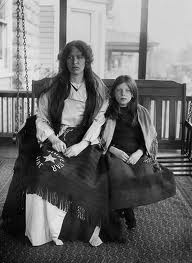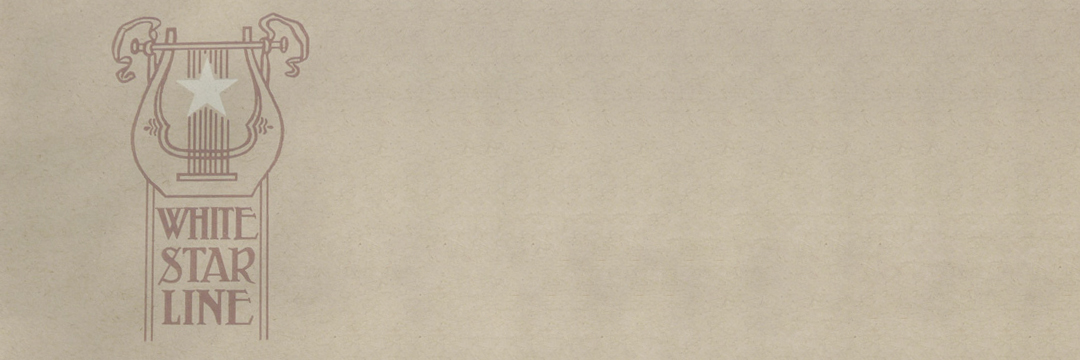In search of two ladies
Survivors in Titanic’s lifeboats would not have heard music from the ship well, not well enough to recognize complete phrases of any tune. Yet, news spread that survivors had heard Nearer, My God, To Thee.
Colonel Archibald Gracie, who was adamant that the band had not played the hymn, said, “I know of only two survivors whose names are cited by the newspapers as authority for the statement that this hymn was one of those played.”
Carlos Hurd, the reporter who first broke the news of Nearer, My God, To Thee, said, “Several persons told of having heard this music from their boats, but, because of distracting noises, they could not be sure what the melody was. Two women, who professed familiarity with sacred music, said it was “Nearer, My God, To Thee.” The statement appeared in my report and gained general currency.”
According to Gracie and Hurd the idea had originated with two survivors (assuming they spoke of the same two), specifically two women. The only question that remains is this: is it possible to narrow down which two survivors were the first to believe they had heard Nearer, My God, To Thee?
Survivor Caroline Bonnell did not make the claim that she had heard the music herself, but explained that those who had heard the band’s last number were in lifeboats close to Titanic. This is an interesting clue. She said, “…those that were in the lifeboats which were close to the vessel say that the orchestra played till the very last and that the men went down into the sea singing “Nearer My God to Thee.””
It is the opinion of the author that the band did not actually play Nearer, My God, To Thee, but another piece with an identical melody at the beginning, Songe d’automne, which was heard from a distance and mistaken for the hymn. It was a distinct musical similarity between the two pieces of music that led Titanic’s survivors to believe they had heard the hymn.
Titanic’s final number: Three Note Theory
In the attempt to narrow it to two women one must study the press reports, the passenger lists of the lifeboats that would have been relatively close to Titanic in her last moments on the ocean’s surface, as well as passenger profiles to determine which ones were musical.
Survivors who claimed to see the band kneeling, marching, or playing until the water was up to their knees are not here included; it is assumed by such accounts that these survivors were either misquoted by the press or that they were caught up in the emotion of the event and stretched their imaginations to paint the band’s last moments.
Candidates for the two survivors:
Mrs. Vera (A. A.) Dick, Boat 3 Starboard, lowered at 1:00am
April 19, 1912, New York Herald:
“As the steamship went down the band was up forward and we could faintly hear the start of ‘Nearer My God to Thee.'”

This is the most interesting account from any of Titanic‘s lifeboat survivors. Dick alluded to the timing of the performance of the hymn, saying it was played as the ship went down. Some have interpreted this to mean that the band played as the ship slipped beneath the waves, engulfing the musicians in water, but it has already been discussed in one post that it would have been logistically impossible for the band to continue playing with the deck at such an extreme angle. Dick’s words could instead refer to the period of time when Titanic‘s bow settled into the waves, when the deck had a slight forward angle but was solid enough to provide steady footing for the bandsmen.
The location of the band was pinpointed, “up forward.” The First Class Entrance Hall at the Boat Deck level of the forward Grand Staircase was one of the quintet’s regular performance venues. It was located just aft of the bridge, forward on the inside of the ship, where the band had access to a performance piano. In this detail Dick’s account concurs with accounts of those survivors who remained on board the ship, who also suggested the band performed in a forward location until the end.
Dick admitted the music was heard “faintly.” From lifeboat 3, gazing at the ship across Atlantic waters, her account is much more believable than those in lifeboats who claimed that they had heard Nearer My God to Thee clearly. The idea that the music was heard faintly also supports the theory that the band continued to perform inside the ship with their pianist.
It is interesting that Dick specified that they had heard the “start” of the hymn. That, together with the admission that the music was heard “faintly,” leads one to believe that she truly did hear strains of music from the band’s final performance. From a distance the opening phrase of Songe d’automne sounded like the “start” of Nearer, My God, To Thee. As Dick was Canadian, she was likely unfamiliar with Songe d’automne, a popular number in British dance halls. When she heard the phrase of music her mind turned instead to the hymn, which was familiar to her.
It is the opinion of this author that if there were only two ladies who identified the band’s final number to reporter Carlos Hurd, that Vera Dick was one of them. Other survivors had also heard the music, but “…because of distracting noises, they could not be sure what the melody was…” (Hurd). A melody faintly heard through distracting noises would have been difficult to identify. The fact that survivors were uncertain from the beginning is a testament that none of the music was heard clearly. It was the hymn Dick thought she heard and identified by name to Hurd.
May Futrelle, Collapsible Boat D, lowered at 2:05am
Date unspecified, written in the United States:
“She sank to the requiem of “Nearer My God to Thee” played by the band.”

Though Futrelle was in one of the last lifeboats to leave the ship, and therefore would have been one of the closest, it would have been unlikely that she heard the phrase of music identified as Nearer, My God, To Thee. The band likely played the introduction to Songe d’automne right around the time her lifeboat was lowered. The music may have been audible but with all the activity, indistinct.
It is important to differentiate between survivors who gave accounts directly after the disaster with qualifying terms like “faint” and “start” and other accounts written after Nearer, My God, To Thee had already become popular legend as the band’s last number. In her exact wording Futrelle stated that the band played the hymn as though it was common knowledge and did not make the claim that she, herself, had heard it. She is not likely one of the two who reported the hymn information to Hurd.
Charlotte Collyer, Boat 14 Port, lowered at 1:30am
April 21, 1912, letter to her mother:
“When the band played Nearer, My God, To Thee I know he [husband Harvey Collyer, lost] thought of you and me, for we both loved that Hymn….”
Date unspecified, account written shortly after the disaster:
“We had gone perhaps half a mile when the officer ordered the men to cease rowing…. No sound reached us except the music of the band, which I seemed, strange to say, to be aware of for the first time. Oh, those brave musicians! How wonderful they were! They were playing lively tunes, ragtime, and they kept it up to the very end. Only the engulfing ocean had power to drown them into silence…. The band was playing “Nearer My God to Thee”; I could hear it distinctly. The end was very close.”

At half a mile from the ship and sitting without rowing, it is possible that Collyer heard strains from the band that reminded her of Nearer, My God, To Thee. She noted that the music was played when the end was close – there would have been a time lapse between the phrase that sounded like the hymn and the final plunge. However, as her account is overly sentimental, and it was given at a very intense time after news of the hymn had already hit the press, it is possible that her memory was influenced by, and possibly overwritten and altered with, the added information of the hymn.
This article is a stub and an ongoing effort. Readers are invited to add information on lifeboats (which ones remained close to Titanic), on passengers (which people in those lifeboats had a musical ear or knowledge of hymns), and any press reports not here included.



The statement of Mrs Vera Dick is very interesting… \”start\”… But Charlotte Collyer says that she heard it \”distinctly\”… I don't know. Maybe, she didn't hear it 'so much distinctly' in reality, but after all this, she cemented in the belief it was a hymn, when she noticed that not only her heard the hymn. And her \”distinctly\” means \”enough clearly to recognize it, but actually not so clearly…\”
LikeLike
Rebekah, I've found some schedule of Titanic's quintet. As one person said to me, this is taken from book \”Titanic: The Ship Magnificent:10.00 a.m. – 11.00 a.m. After Second Class Entrance foyer, C Deck 11.00 a.m. – 12.00 noon First Class Entrance hall, Boat Deck 4.00 p.m. – 5.00 p.m. First Class Reception Room 5.00 p.m. – 6.00 p.m. After Second Class Entrance foyer, C Deck 8.00 p.m. – 9.15 p.m. First Class Reception Room 9.15 p.m. – 10.15 p.m. After Second Class Entrance foyer, C DeckI don't know whether you have this, so I post it.Also, I found out that Percy Taylor could play also cello, so the problem with the pianist in the trio is solved.
LikeLike
Thanks, Yes, I have TITANIC The Ship Magnificent and it is one of my favourite books!
LikeLike
I think you're right here. I believe because the cello was playing the introduction to Songe d'automne that the music carried, and those passengers who had excellent hearing recognized in the music the tune to NMGGT. This part of the music would have sounded distinctly like the hymn. But the band was playing the waltz, not the hymn.
LikeLike